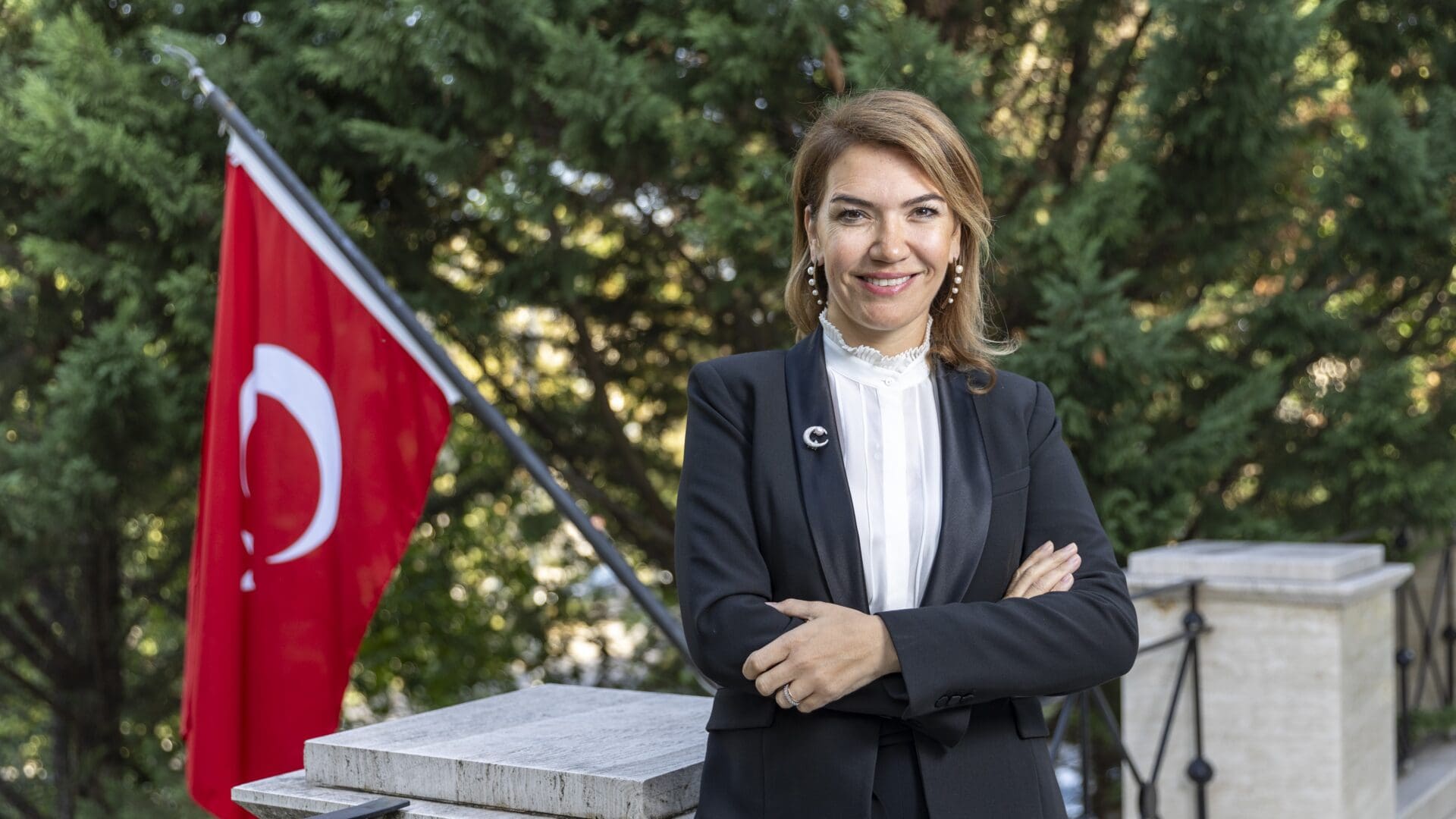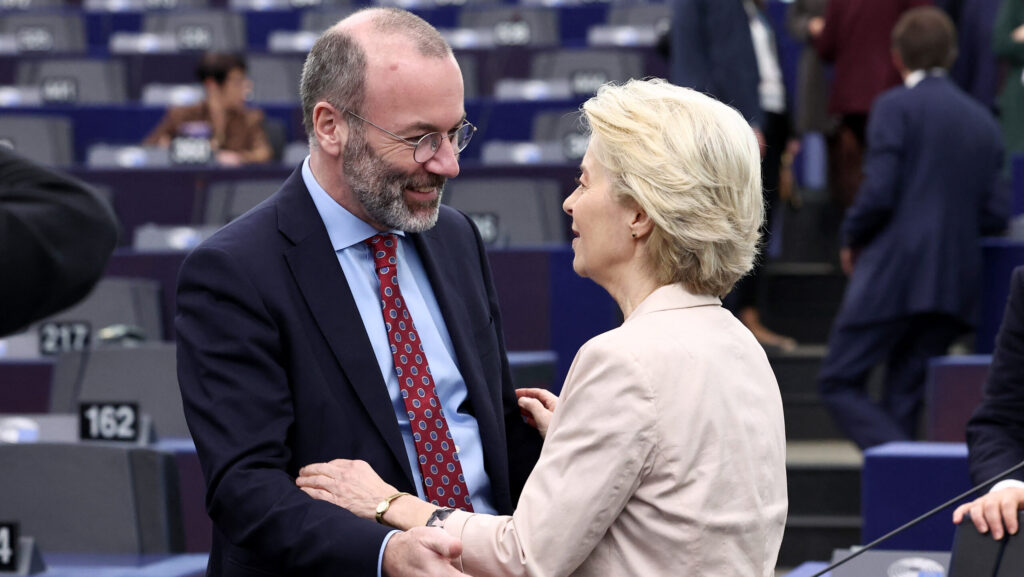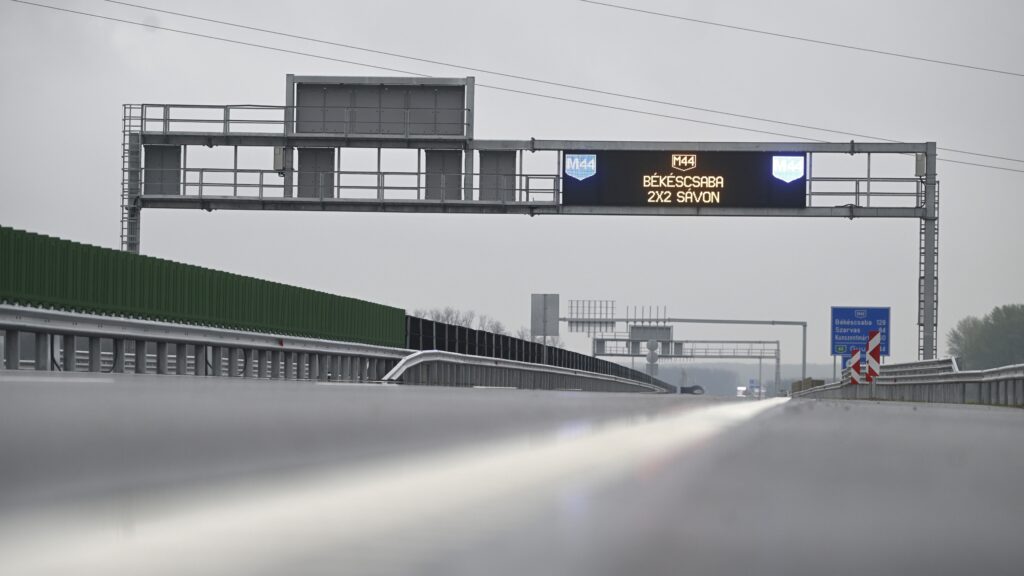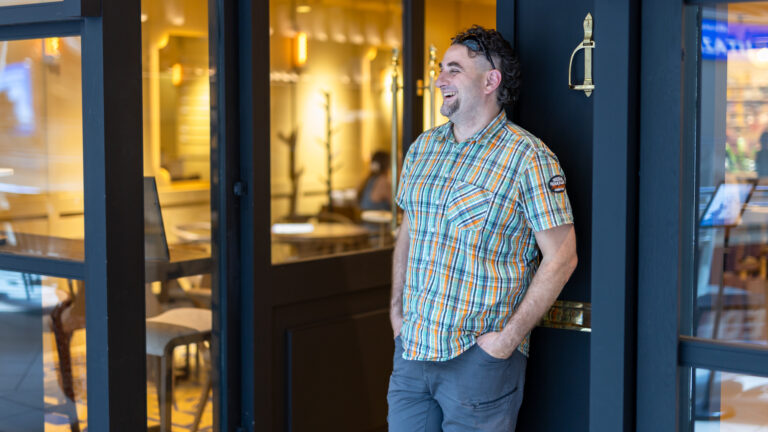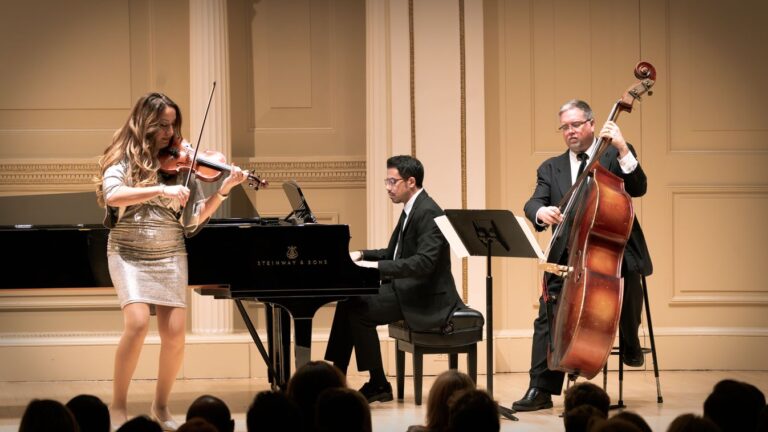At the end of October, the 100th anniversary of the founding of the Republic of Turkey was celebrated, and almost at the same time, Hungary and Turkey commemorated the centenary of the establishment of diplomatic relations between the two countries. Hungary was in fact the first state with which the new Turkish state concluded a friendship treaty on 18 December 1923. Half a year later, the two countries opened embassies in each other’s states—the importance of Hungary in Turkey’s eyes was obvious even then. But why is the relationship so special? An interview with Turkish Ambassador Gülşen Karanis Ekşioğlu.
This interview was first published in Hungarian in Mandiner.
***
There is a special feeling of kinship between our nations. In your opinion, what are the ties that bind the two peoples together?
Turks consider Hungarians to be distant relatives, close neighbours, and eternal partners. Wherever a Hungarian tourist goes in Turkey, they will experience this attitude from the Turkish people. They regard Hungarians as siblings. But I feel the same as a Turkish diplomat in Hungary: wherever I go in the country, the attitude of the Hungarians is also very nice. This goes far beyond the good relationship between Orbán and Erdoğan—of course, the cordial relationship between the leaders can be a great advantage.
This is interesting because Hungarians have not forgotten the 150 years of Turkish occupation, which is not necessarily a positive memory. Still, they treat the Turks cordially. Why is that so in your opinion?
Well, I receive a lot of questions on the rich, complex and multi-layered nature of Turkish–Hungarian relations. Some people even have a difficulty understanding the cordial relations between the two countries despite such historic encounters.
This is not something new. The first Ottoman Sultan came to visit Hungary in 1867, many years after the retreat of the Ottoman Empire. Hungarians welcomed him at the Danube with volley fire and great respect. Historians reported that there were so many people on the Chain Bridge that it was visibly bent. When he visited the Castle district next day, the marching band was playing the Turkish national anthem along with the Hunyadi march.
Similarly, during the Hungarian freedom struggles, the leaders who were forced to flee, Imre Thököly, Ferenc Rákóczi II or Lajos Kossuth were given asylum on Turkish soil, and the Turkish government did not hand them over to either the Austrians or the Russians. The memories of mutual assistance are part of the common past.
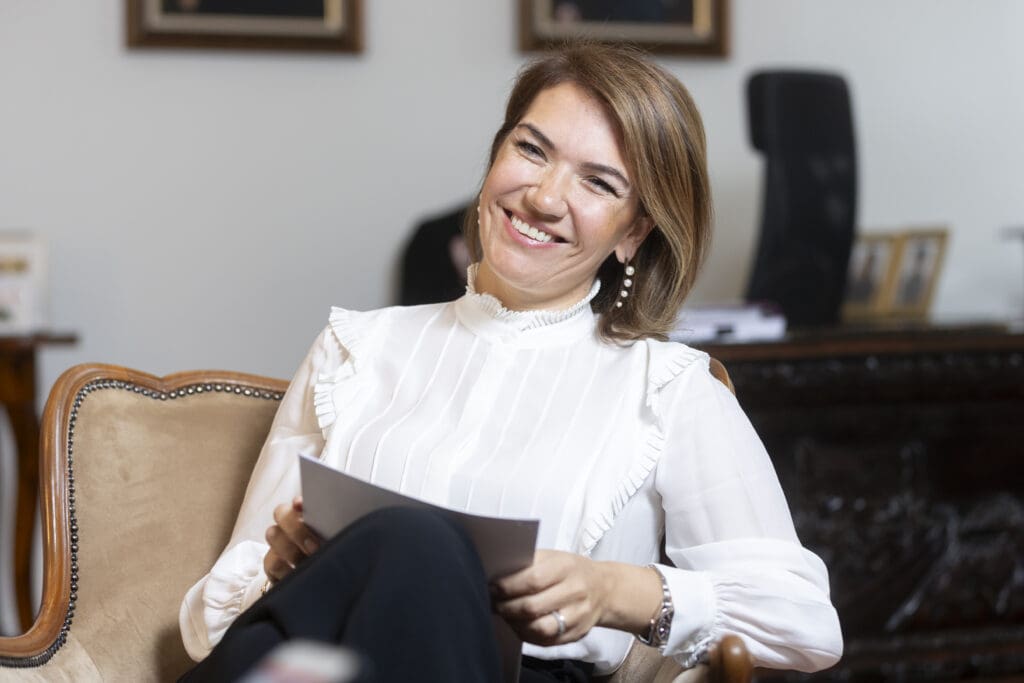
Kemal Atatürk invited Hungarian scientists and specialists to Turkey, and, for example,
the founder of the Istanbul fire department was also a Hungarian, Ödön Széchenyi.
In recent years, there has already been a strategic partnership between the two countries. Why is Hungary important for Turkish strategic planning?
It is a relationship based on mutual interests. There is a well-functioning cooperation, a synergy, primarily in the defence and energy sectors, trade, and culture. We are NATO allies, members of the Council of Europe and partners in the Organization of Turkish States (OTS). We need strong allies; Hungary is our obvious ally due to the previously mentioned sense of kinship and well-functioning relations.
When did this strategic partnership begin?
We established strategic partnership with Hungary back in 2013. And, when President Erdoğan visits Budapest this December, we will elevate this partnership to the level of ‘enhanced strategic partnership’. So, we are upgrading this crucial relationship so as to reflect the current depth and breadth of Turkish–Hungarian relations. We will widen the scope of our collaboration while focusing on selected areas of high significance. Trade, energy, and the defence industry are all within the scope of this enhanced strategic partnership.
Turkey has a strong military industry. We export Turkish military equipment to about a hundred countries, and Hungary is modernizing its forces these years, so supply and demand met, as Turkish weapons are NATO compatible. Or I could mention the energy sector: Turkey is a vital transit country, several gas and oil pipelines (TANAP, Turkish Stream) pass through its territory, and it is also the fifth largest supplier of renewable energy sources to the European consumer market. Hungary needs natural gas, and we are ready to supply it.
There is already an agreement with the Turkish company Botas.
Yes, on 20 August, Hungarian MVM has agreed on the purchase of nearly 300 million cubic metres of natural gas with Botas, which from next year will deliver the raw material.
Hungary has thus become the first non-neighbouring country to which Türkiye exports natural gas.
You have mentioned trade relations. Is bilateral trade growing?
Yes, it’s growing. The plan is to increase the turnover of bilateral trade to six billion dollars—we are currently close to the four billion level. In 2021, there was a turnover of three billion, so we are moving forward. About 500 Turkish companies operate in Hungary, which for us is the heart of Europe: a transit station from which our exports can easily be delivered to other EU states. But Hungary is a big market in itself, a destination for Turkish goods.
This year, President Erdoğan participated in the celebration of the Hungarian national holiday on 20 August. Beyond national interests and political sympathy, has a kind of friendship developed between President Erdoğan and Viktor Orbán?
Yes, that’s quite clear. It can be seen in the behaviour of the two, the way they talk to each other, it is clearly a cordial relationship. Interstate relations have their own order, they are handled by government professionals, but if two leaders have a good personal relationship, it can give a huge boost to bilateral relations. It is also a great advantage for me personally during my work as an ambassador that
the relationship between my country and my place of service is exceptionally good.
Hungary supports Turkey’s ambition to join the EU. But: will Turkey ever become an EU member state?
The goal of EU membership has been part of Turkish aspirations for nearly sixty years; full membership is our strategic goal. 17 of the 35 negotiation chapters have been suspended by the EU for various political reasons—this is not fair and is also not in line with the EU’s contractual obligations. Turkey has been part and parcel of Europe throughout centuries, is a founding member of the Council of Europe, a member of the OECD and the OSCE.
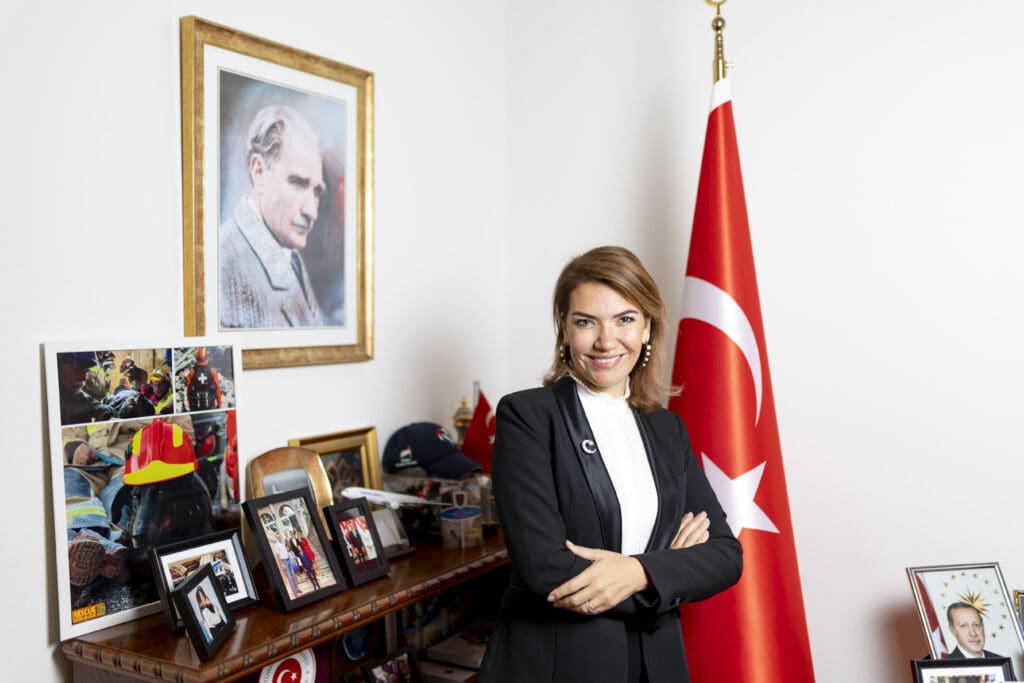
Unfortunately, our accession process has been stalled by some members for short-term political gains. It is not allowed to run its natural course. We reached a point of stalemate.
Does Turkey want to become a member for economic reasons?
Not only. Economic benefits are also important, since the EU is Turkey’s largest trading partner, and the goal of joining is to ensure the well-being of the Turkish people. Since the founding of the Republic of Turkey in 1923, the Turkish state has always been oriented towards the West, and this European ambition can further be realized with EU membership. Moreover, if the EU wants to be a geopolitical factor in world politics, then Turkey must be part of the EU, and in the current energy situation it also plays a decisive role in European energy supply.
This is clear, but EU membership depends on the fulfilment of certain political criteria: rule of law, respect for human rights, freedom of the press. According to the EU institutions, these are not implemented sufficiently in the Turkish system.
As a matter of fact, the EU membership perspective has helped us a lot to transform Turkish democracy and economy. We have undertaken many structural reforms and expanded the scope of fundamental rights and freedoms. We have also completed long-awaited structural reforms in our banking, social security and labour markets.
However, the Turks’ current feeling about this is that whatever we do, it will not be enough. No matter what conditions we wanted to meet, the answer was always that the implementation of the expectation into practice was incomplete.
The EU treats the Turkish accession request with prejudice.
A presidential system has been in place in Turkey since 2017, this was confirmed by a referendum with a high turnout; the majority of Turks voters voted for this, it was a democratic decision. The government initiated this change to make the work of the executive power more efficient, to strengthen stability, and to speed up state decision-making. In the time that has passed, the political parties have seen the shortcomings of the new constitutional system, so there is a growing expectation that a new constitution will be needed; this process has already started.
But why does Turkey, which has different traditions and a Muslim majority, want to be part of a debating, doctrinaire liberal, post-Christian European community struggling with an institutional crisis? Are you certain this is your place?
Quite the contrary, membership of a country like Türkiye with a predominantly Muslim population will constitute a strong response to the ‘clash of civilizations’ arguments.
It will also consolidate the ‘unity in diversity’ principle of the European Union. This is especially important at this particular point in time when Europe is faced with racism, xenophobia and Islamophobia.
What makes Europe unique is the fact that it is the only continent whose borders are not drawn by geography, but rather by norms and values. With Türkiye’s membership, diversity can just go beyond being a slogan. So, the question is not about geography, identity or culture. It is what kind of Europe we need and want. And this is question for all of us.
A settlement on Cyprus could be part of the EU rapprochement, but Ankara does not support the UN unification plan, which would create a federal state with a Cypriot and Turkish part. Why isn’t Turkey in favour of the plan?
This suggestion is not accurate. The first UN plan with such content, the Annan plan, was voted down by the Greek Cypriots in the 2004 referendum, while the Turkish Cypriots overwhelming supported it in the referendum. It was a historic opportunity, but the Greek Cypriots misused it. The Greek part of the island became a member of the EU as if they represent the entire island, while the Turkish part was left out.
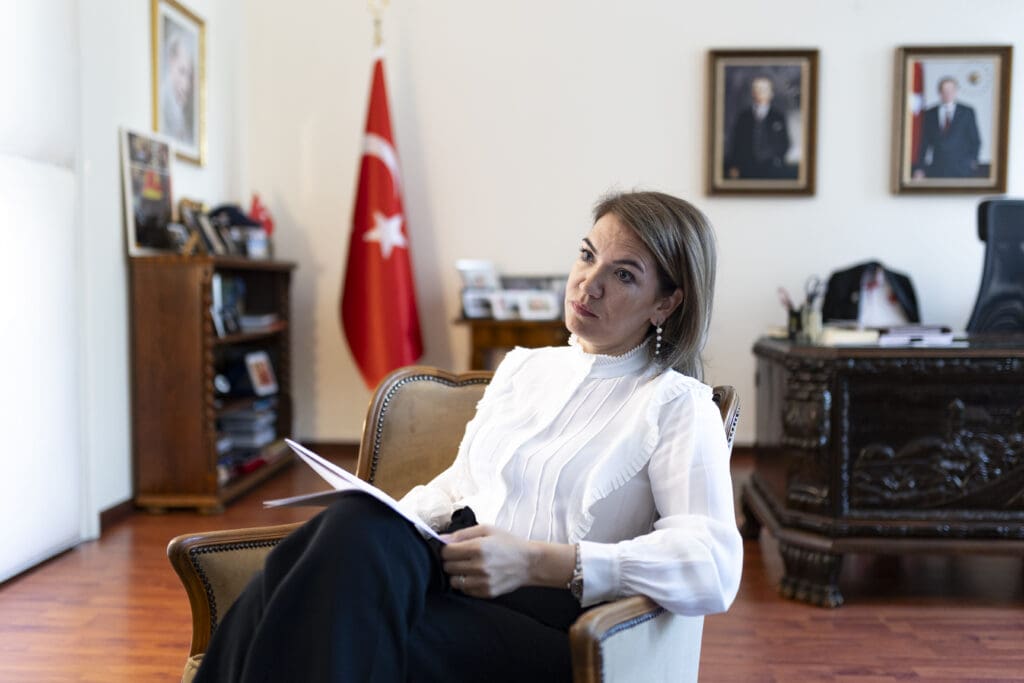
Even Jack Straw, who was the then British Foreign Secretary, publicly admitted that the EU shouldn’t have let the Greek Cypriots to join after rejecting the UN’s comprehensive peace plan in the referendum.
Unfortunately, the EU’s blank cheque to the Greek Cypriots under the pretext of the ‘EU solidarity’ continues to poison all aspects of Türkiye–EU relations.
For many years, the international community did not deal with this hurtful case, so by today the Turkish Cypriots have developed a vision for a two-state solution. Two equal states recognized by the international community. The statehood of the Turkish Republic of Northern Cyprus and the welfare of the Turkish Cypriots are Turkey’s priorities.
Sweden’s NATO accession depends on Turkish and Hungarian parliamentary ratification. The autumn session has started in Ankara. Will it be voted on within weeks?
The Protocol on Sweden’s NATO Accession was signed by President Erdoğan and was sent to the Turkish parliament. The legislature started its work on 1 October, but the parliamentary committees have not yet convened. The foreign affairs committee will discuss the proposal in the first round, followed by the plenary session of the legislature. As a diplomat, I cannot tell when a decision can be expected.
2024 will be the Hungarian–Turkish cultural year, with plenty of programmes. How will the two states celebrate that?
Since this is a centenary, hundreds of cultural programmes are organized both in Hungary and in Turkey in the spirit of Turkish–Hungarian friendship, and not only in the two capitals, but also in rural settlements. There will be many exhibitions, concerts and events with Turkish and Hungarian guests and artists. For us, the main goal is to show the roots and richness of Turkish culture. My motto is ‘100 events for the 100th anniversary’.

